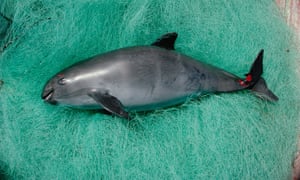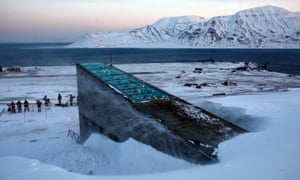“New species of frog from the Neotropics carries its heart on its skin”

https://www.eurekalert.org/pub_releases/2017-05/pp-nso052517.php
In the Neotropics, there is a whole group of so-called glassfrogs that amaze with their transparent skin covering their bellies and showing their organs underneath. A recently discovered new species from Amazonian Ecuador, however, goes a step further to fully expose its heart thanks to the transparent skin stretching all over its chest as well as tummy.
“World Carbon Price Seen Needing to Increase Sevenfold by 2020”

Carbon prices need to jump sevenfold by 2020 from current rates in the world’s biggest market to meet climate goals cost-effectively, according to a commission of economists and scientists.
EU carbon settled Friday at 5.19 euros ($5.80) a ton on ICE Futures Europe in London.
Climate Change Is Making It Harder to Sleep

https://www.bloomberg.com/news/articles/2017-05-26/climate-change-is-making-it-harder-to-sleep
Climate change is coming for you in the night.
That’s the conclusion of scientists who study how heat disturbs sleep—and how projected warming is expected to make bad sleep even worse.
“Pretty Soon Electric Cars Will Cost Less Than Gasoline”

Battery powered cars will soon be cheaper to buy than conventional gasoline ones, offering immediate savings to drivers, new research shows.
“Chinese appetite for totoaba fish bladder kills off rare porpoise”

The totoaba, which is itself highly endangered, is caught for its swim bladders which are smuggled to China for sale on the black market. Undercover investigators found the swim bladders, called maws, for sale in Shantou in Guandong province, at an average price of $20,000 per kilogram. The cost has led to the maws being dubbed “aquatic cocaine”.
“Arctic stronghold of world’s seeds flooded after permafrost melts”

It was designed as an impregnable deep-freeze to protect the world’s most precious seeds from any global disaster and ensure humanity’s food supply forever. But the Global Seed Vault, buried in a mountain deep inside the Arctic circle, has been breached after global warming produced extraordinary temperatures over the winter, sending meltwater gushing into the entrance tunnel.
“NATO Lawmakers Warn Global Warming Will Trigger Food Shortages”

Lawmakers from nations in the North Atlantic Treaty Organization are warning that global warming will lead to mass migration and conflict in the Middle East and Africa, another reason President Donald Trump should stay in the Paris climate deal.
“Komodo Dragon Blood May Hold the Secret to Killing Superbugs”

The blood of the endangered Komodo dragon is known for its toxicity, but the world’s largest lizard also appears impervious to disease and infection. A team of researchers who spent the past four years analyzing Komodo blood discovered it’s loaded with compounds that could be used as antibiotics. They say they’re hoping to turn those compounds into drugs that may be worth billions of dollars and save millions of lives. “I’ve got a 6-year-old daughter who sleeps on a stuffed Komodo,” says lead researcher Barney Bishop. “I’d like her to grow up in a world with effective antibiotics.”
“Slaughter of Africa’s Donkeys for China Hurts Poorest Farmers”

Donkeys are being slaughtered at an alarming pace to feed a global trade in donkey hides that’s fueled by soaring demand in China, where the skins are used to manufacture a gelatin believed to have anti-ageing and libido-enhancing properties. The gelatin, known in China as e’jiao, is so popular with middle-class consumers that a Chinese producer has created a donkey exchange to help companies find enough hides to keep their factories busy.
Like the poaching of Africa’s rhinos and elephants, and deforestation caused by the largely illicit trade in rosewood timber, the slaughter of donkeys is an unforeseen consequence of rising Chinese incomes and an expanding middle class. While the global donkey population is estimated at 44 million, demand is currently thought to be at least 4 million per year, The Donkey Sanctuary said in a report this year.

Recent Comments